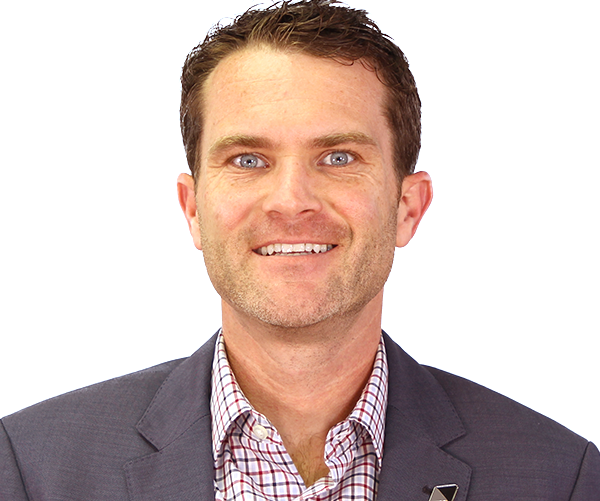A teen boy, a matronly lady, a graying guy perhaps in his 50s with a man bun, two women in their early 30s, one guy who looked like the quintessential college student and a couple who looks like they are well into their Golden Years. And a teen girl.
Nine people, plus myself, were all sitting in a Red Cross lobby in a recent early Saturday afternoon. I was there to donate platelets. They were there to donate whole blood. That wasn’t the only difference. Each one had their noses stuck in their smartphones. I didn’t.
No one looked up. No one said a word, save for the guy with the man bun who was engaged with someone somewhere else, apparently playing a video game on his smartphone.
For a good solid 15 minutes, none of them looked up from their smartphones.
To be clear, I hauled out my phone twice, as I received two text messages and replied to them. Not that it matters, but I could probably describe in fairly decent detail what they were wearing, how they were slouched or if they were sitting with near perfect posture, and what they looked like in general.
That is when it dawned on me. Most of us would be hideous eye witnesses to reality today unless we were videotaping it with our smartphones.
The art of conversation with strangers is dying a rapid death. Unless there is an app for it, more and more of us are not having social interaction with strangers. The trend is to band together in cliques on social media.
The schoolyard groupings of jocks, nerds, cheerleaders, cowboys and such have been replaced by interest groups on the Internet tailored to specific political leanings, hobbies and passions. Just like the schoolyard cliques that worked to re-enforce beliefs, biases, and perceptions so does the compartmentalization of people on the Internet. The pack mentality of cliques tends to at the very least be dismissive of those not in the same circle – and at the worst can be downright vicious.
As a result, there is a strong inclination to look down on those not in your clique and to be less that civil and tolerant of those who have different values and views. Is it any wonder why political discourse today is moving beyond coarse?
The Internet — despite what we might like to tell ourselves — is not a place where most people go in search of expanding their horizons. We tend to look for things that mirror our interests and views.
A few years back, I was asked by a casual acquaintance what magazines I read on a regular basis. I rattled off the list: “Mother Jones,” “National Review,” “The Atlantic,” “Wired,” “The New Yorker,” “Policy Review” and “Reason.” He told me he was stunned, adding I was “all over the road.” I replied that you can’t appreciate other views without exploring them.
Over the years, I have ventured into “new things,” learned to appreciate other views, or was reminded of the danger of stereotyping people by age, looks, race, profession, religion, affiliation, sexual orientation, dress or even the outrageous way they pierce their bodies because I took the time to strike up conversations with strangers. Not any strangers, mind you, but strangers I will likely never see again such as waiting to donate blood, hiking in Death Valley or waiting in a long line.
We like to think we are doing that on the Internet, but in reality, we seek out chartrooms, blogs, social media streams and such that basically are in line with our views or interests. This becomes a great source of blindfold affirmation that we hold the right views or are have the right interests.
There have been times when my biases caught me off guard, because I was killing time waiting like I was Saturday, and I struck up a low-key conversation with someone not giving Apple, Samsung or LG a non-stop Eskimo kiss.
I’ve been inspired for life by a four-minute exchange with an octogenarian at 9,000 feet above the floor of Death Valley and impressed by the depth of a young man that appeared to be a cross between an emo and toned down punk rocker — if that is possible — while waiting in a jury duty room.
And for the record, the guy in his 80s was pretty liberal, while the guy in his early 20s clearly had some values that would be described as conservative.
You can’t find out about other people and what makes them tick if your window to the world is accessed via bytes in an Apple. You might think you do, but what you see in a virtual world that plays to whatever tune you want or hope it will be is not the same as real “face time.” If you doubt that, two words: dating sites.
That said, when I’m a stranger I’m not exactly what you would call naturally talkative. But if I don’t have my $800 pacifier out weeding through photos as well as checking emails and voicemails, I might strike up a conversation.
If someone else isn’t busy doing a Fred Astaire and Ginger Rogers act with a couple of fingers gliding across the surface of a pocket computer, sooner or later we’ll make eye contact. That can lead to a short, polite conversation or open up into a more substantive exchange.
You don’t have to go on the Internet to find out about the world. All it can take is simply talking to a stranger next to you in a waiting room.
This column is the opinion of Dennis Wyatt, and does not necessarily represent the opinions of The Courier or 209 Multimedia.





